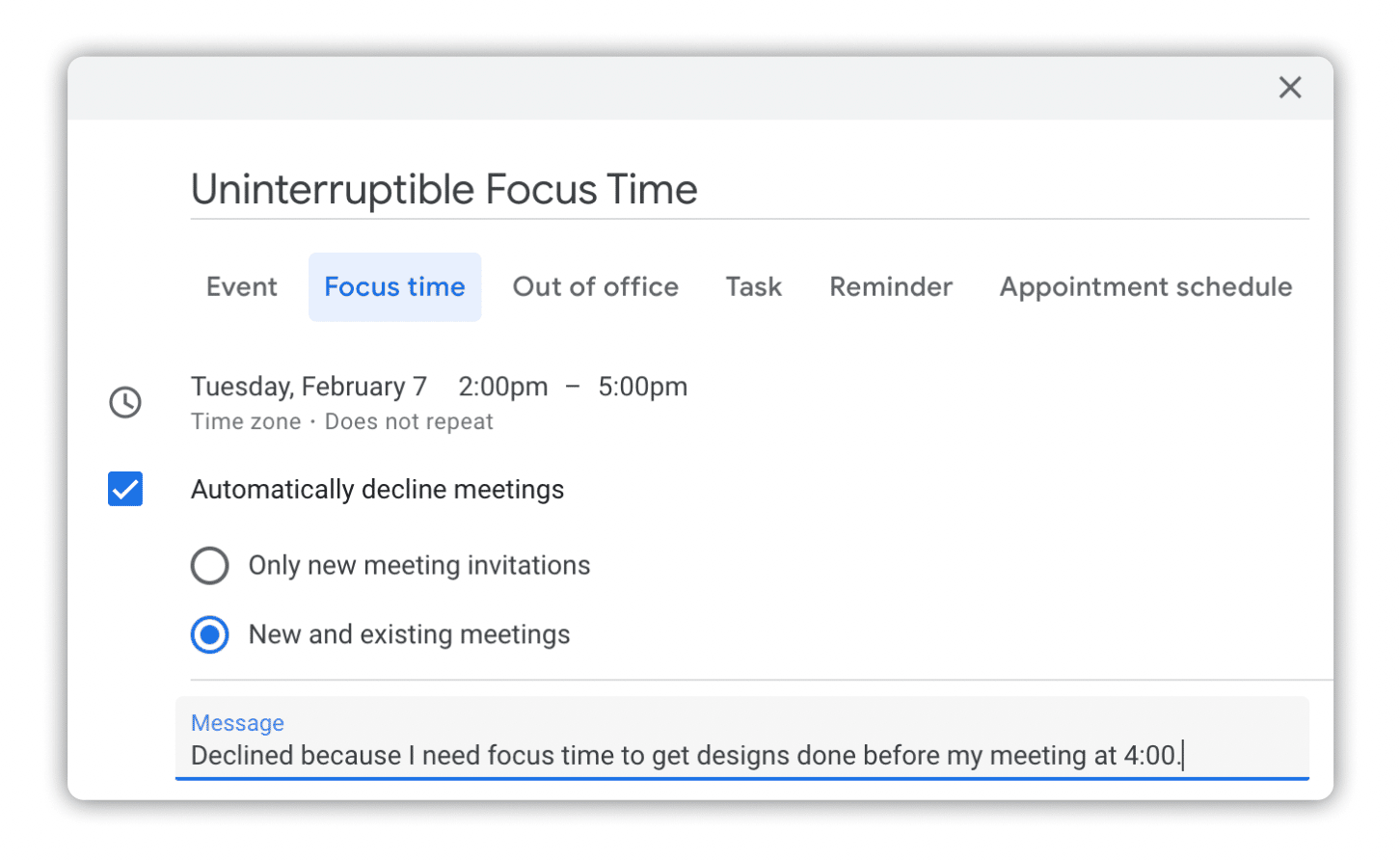Building software requires a lot of meetings. We meet to collaborate with our teams, plan sprints, run retros, and workshop or review work with clients. Then there are ad-hoc meetings when something comes up and we need to meet urgently. Don’t forget lunch meetings when you just need some time to socialize. Department meetings. Team stand-ups… the list goes on.
Meetings aren’t bad, they’re necessary, and oftentimes are where collaboration takes place. But what do you do when you start to find yourself in too many meetings, struggling to get actual work done, and suffering from context switching? Try these five simple tips to avoid meeting fatigue.
Block out focus time.
Before you start your week, check your calendar and block out any large chunks of time for heads-down work. This may seem like overkill, but don’t worry if your calendar starts to look insane. Preserving your time can help prevent additional meetings from being booked over open time you had planned to focus on completing tasks. Title your meeting so others know what you will be working on and if you can be interrupted. Set your focus time to automatically decline meetings if the situation is especially dire.

Eliminate unnecessary meetings.
This one is pretty simple. Attend only the most important meetings, and try to keep them short and to the point. If you don’t think you need to be in a meeting, check in with your team and see if you can sit this one out. If you are only needed for a portion of a meeting, don’t be afraid to duck out early after checking in with your team.
Set expectations around communication.
Learn to say no to interruptions, and communicate your expectations to your team. It can be hard to tune out emails and Slack, but it’s okay to set your status to “Heads Down” when you need to get to work. If a day is particularly busy and you need to prevent distractions or ad-hoc meetings, send out a Slack message to your team in the morning letting them know when you will be uninterruptible for the day.
Set a meeting-free day.
If you can swing it with your team, setting a day of the week to be meeting-free can help increase everyone’s productivity.
Reflect and adjust.
Regularly review how you are using your time. Then, work with your team to make adjustments where necessary.
Remember, reflection and constant adjustment are key to finding a healthy balance between meetings and productivity. With these tips in mind, you’ll be well on your way to becoming a time-management expert!

